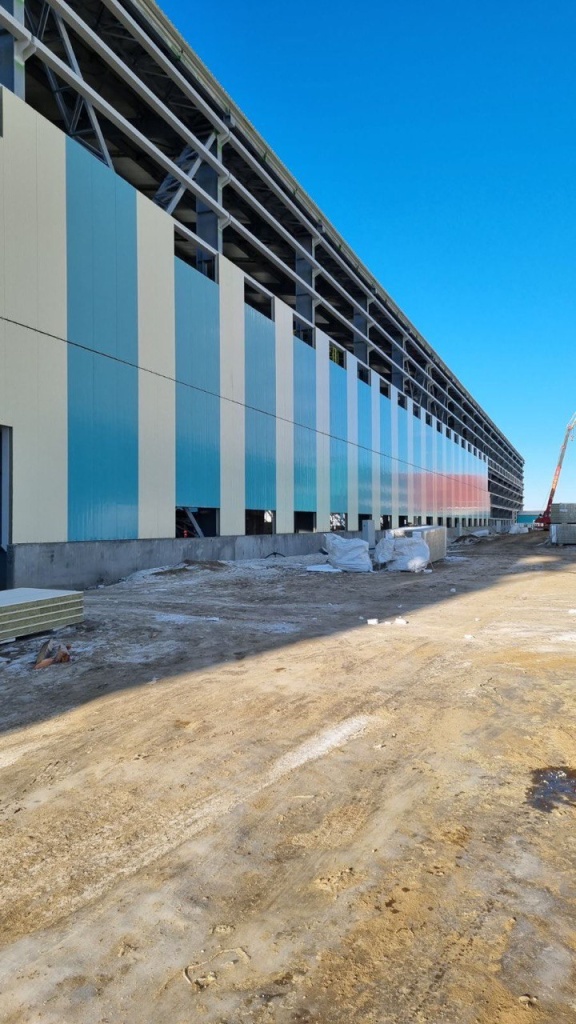19.06.2023 - Aluminium Association
 The cooperation agreement signed between RUSAL and Novosibirsk Sandwich Panel Plant (NZSP) is aimed at the development, promotion and application of innovative aluminium sandwich panels in current and new industrial and civil construction projects.
The agreements reached allow the two companies to work together to expand the use of domestic aluminium wall materials and structures in construction, to involve designers in the promotion of new products, and to update the regulatory framework.
The cooperation agreement signed between RUSAL and Novosibirsk Sandwich Panel Plant (NZSP) is aimed at the development, promotion and application of innovative aluminium sandwich panels in current and new industrial and civil construction projects.
The agreements reached allow the two companies to work together to expand the use of domestic aluminium wall materials and structures in construction, to involve designers in the promotion of new products, and to update the regulatory framework.
The use of aluminium in sandwich panel cladding is a new level of opportunity in the field of wall materials for construction. One of the main characteristics of aluminium products is their high corrosion resistance, which provides a significant advantage over solutions based on other materials - the service life of the products is up to 50 years.
At the same time, the cost of aluminium compared to stainless steel is 30% lower when considering a product counterpart with a 50-year lifespan. NZSP was one of the first Russian manufacturers to launch large-scale production of such products in 2023. Certification tests and trials have been carried out, and the original production technology has been mastered. More than 55,000 square metres of innovative products have been produced and plans call for at least another 110,000 square metres to be sold by the end of the year.
"The agreement with RUSAL will allow us to gain competences in new alloys, technologies and expand sales markets, which will be a definite advantage for us over our competitors," said Denis Tuzko, General Director of NZSP.
 ALLOW's flagship brand of low carbon footprint aluminium will be used to manufacture the products.
Most customers across industries are increasingly opting for recyclable or more sustainable materials that will provide them with an environmentally friendly product.
ALLOW's flagship brand of low carbon footprint aluminium will be used to manufacture the products.
Most customers across industries are increasingly opting for recyclable or more sustainable materials that will provide them with an environmentally friendly product.
Aluminium sandwich panels are in demand for construction of industrial production sites, facilities of special climatic zones, livestock and agricultural complexes, warehouses for storage of aggressive substances and materials, chemical and oil and gas industry facilities.
"Aluminium is not only highly corrosion resistant, but also does not attract dust, which puts it beyond competition for use in facilities in the food, pharmaceutical and medical industries, where sterile and clean rooms are needed," commented Roman Selin, an expert at the Aluminium Association, on the news.

